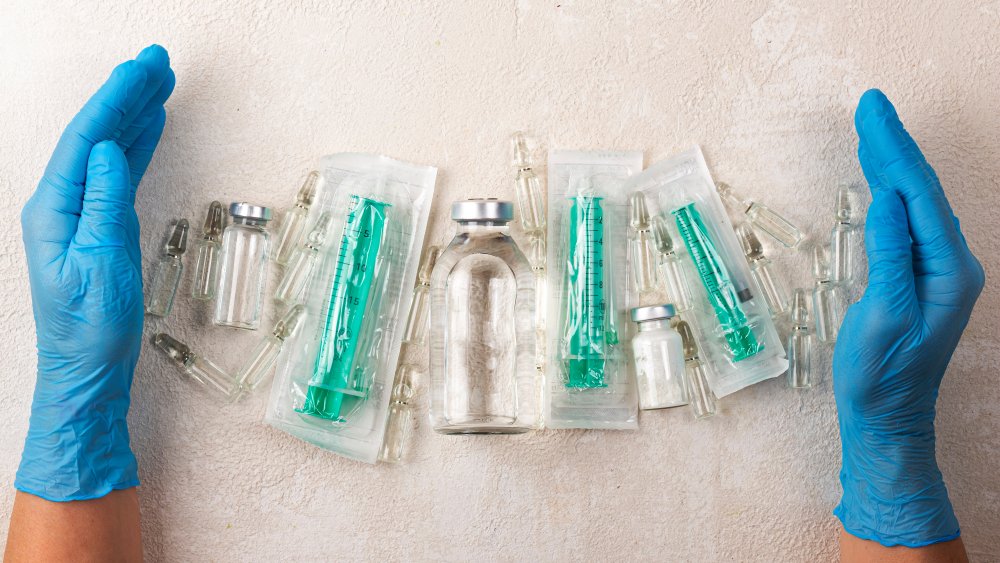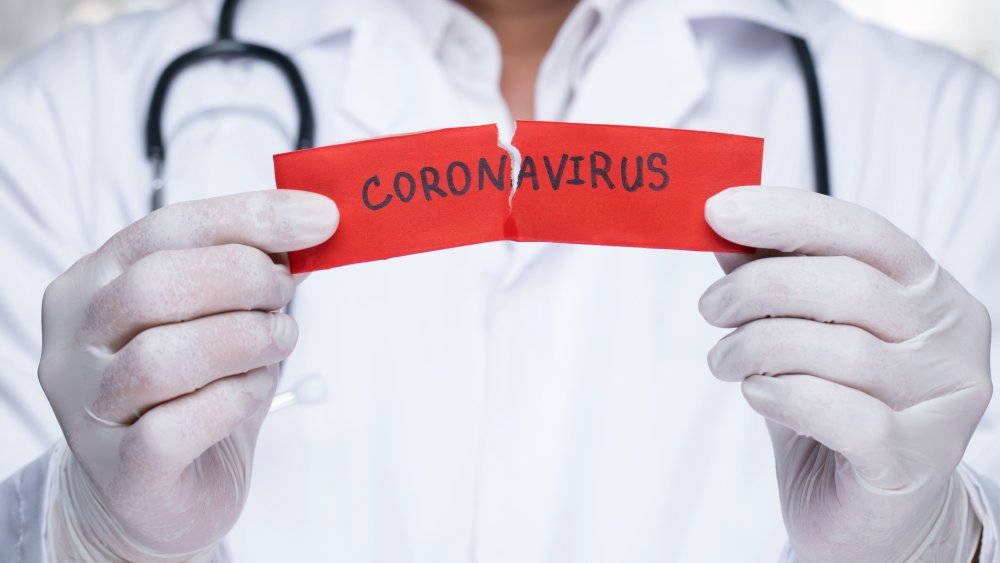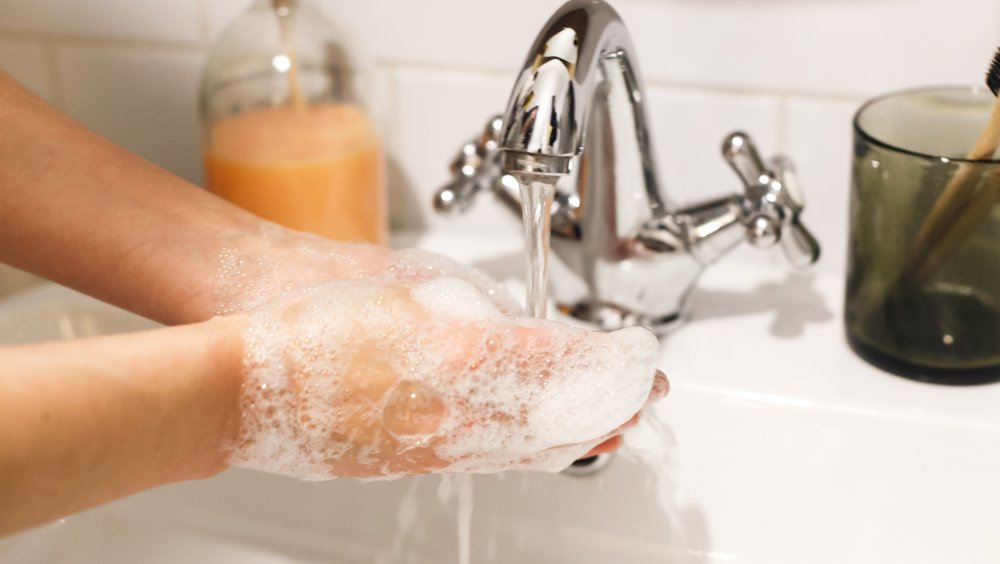3 Things The Coronavirus Supposedly Does Not Like
In the ongoing interaction between viruses and human beings, it's pretty clear that the humans aren't all gaga about the new kid on the block, the COVID-19 coronavirus. Considering how it treats us, it's probably safe to assume the virus isn't crazy about us, either. Viral infections are nothing new, nor are viral epidemics (loosely defined as a lot of cases in comparison to the overall population, usually cropping up quickly) or even pandemics (an epidemic that crosses boundaries, because viruses have a very poor sense of boundaries). Most of us are no stranger to the common cold; plenty of people get one form or another of influenza every year; and almost all of us spend some time at home, in bed, feeling sorry for ourselves and hydrating and we recover nicely.
It's probably accurate to suggest that this year's novel coronavirus is nothing to, you should pardon the expression, sneeze at. By no stretch of the imagination does it mean instant death for the poor, unfortunate souls who acquire it. But it's no fun, either, and is especially trying for people who already have significant health issues, compromised immune systems, or, well, age.
Coronavirus can be beaten
So what to do? In point of fact, what you should do about avoiding coronavirus is what you should do as a matter of course anyway. Part of it's common sense, part of it's good manners, and all of it's doable. Colorado Public Radio offers helpful tips for staying healthy during the present pandemic.
First, cleanliness is next to Godliness. Wash your hands. A lot. Any time of the year, there's a lot of germs out there. Warm water, soap, for about 20 seconds or so; sing "Happy Birthday" to yourself a couple of times, or recite the opening narrative to Star Trek. Or just time it. But do it. The web site for Northwell Health also suggests that you avoid touching — no handshakes, avoid sick people, and practice that sneeze-or-cough-into-your-elbow thing. A good hand sanitizer is your new best friend for the time being. Use it thoroughly, and use it often. It really is a matter of better living through chemistry. For that matter, besides keeping your hands clean — and keeping them away from your face, please — it will be helpful to clean and sanitize surfaces you come into contact with on a regular basis. Your phone, for instance. Give it a wipe. Also keyboards (that applies to you musicians out there) and countertops.
Viruses don't like a calm, informed public
When pandemics create panic, a bad situation gets worse. On that note, rethink stocking up on face masks – at least from the store. Here's why, according to the World Health Organization: For one thing, it's creating a shortage for medical professionals who need them more. They won't help you, unless you — as would a medical professional — are caring for someone who's sick. They help keep you from spreading the airborne droplets that bear the virus to others, but that's only if you're already ill. The CDC, however, has begun recommending that you do wear a face covering (not a mask — leave those for health care workers), when out in public, given that many with COVID-19 may not show symptoms. The idea is to help reduce transmission and flatten the curve.
It's probably pretty important to remember that although you should avoid physical contact with someone who's ill — and yes, that can be difficult if you're living with that individual — it doesn't mean you ignore them, especially if they're sick and for all intents and purposes alone. Ours is an age of wonders. Call. Video call. Text, email, reach out. Let them know you care. Most important, let them know that they aren't alone in this.
Finally, unless you're truly sick, stay home. If the symptoms aren't severe, don't clog up hospital emergency rooms; they have enough on their hands at the best of times, let alone now. Even if you're not sick, it is incredibly important to respect social distancing and self-isolation. As The Atlantic puts it, anyone looking for a reason not to party has the ultimate hall pass: "With few exceptions, now is the time to cancel get-togethers." Schools are closing, some switching to online teaching, as are all non-essential businesses, and for good reason. An informed public working together is a virus' worst nightmare.
Viruses don't like distance
Public transportation, though unavoidable for many people, might not be your best, first choice. If you have another way to get from Point A to Point B (assuming that you have to go out), do it. You've been meaning to get more steps in anyway, right? As for public venues — restaurants, theaters, performances of various kinds — support independent film and local artists, but not in person, right now. Chances are there are now legal measures preventing these sorts of gatherings anyways, but if not, look for ways to support art and local business without risking anyone's health. Shop online and order takeout.
If you have the luxury of staying home, it's honestly a great time to catch up on your reading. If you have to go out, try not to come into contact with common areas of usage, like doorknobs. Open doors with your shoulders, if you can, or use some sort of disposable or washable barrier. You might look awkward, but awkward is a small price to pay for staying healthy.
Common sense, though generally uncommon, will help a lot. Don't stockpile household goods — remember that face masks should be saved for those who are already sick, or for medical professionals caring for infected patients. Err on the side of caution. Wash your hands. ("Where no one has gone before..."). We're all in this together, but for now, keep a safe distance from others whenever possible. Stay calm. This, too, shall pass.



